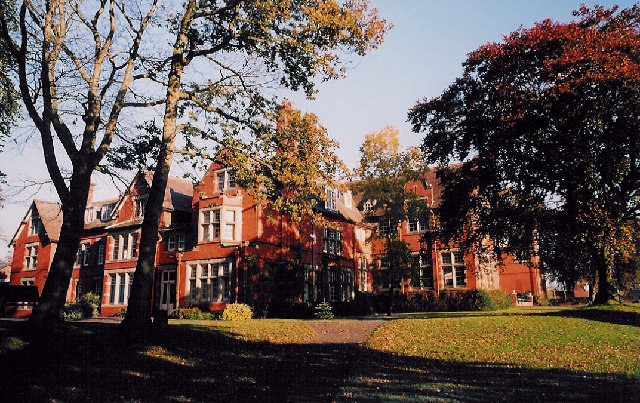Education for Life Long Learning!
Do you still talk to your teachers?
Do they still talk to you?
The three shots I have included above and to the right are in no particular order, Harper Adams University College ( formerly Harper Adams Agricultural College), Aberdeen University and Dundee University. There have been other institutions that I have attended to receive an education in response to changing times other years but these are probably the most traditional. They are in their own rights National and International leaders certainly in some of the disciplines I which I studied. All of them were pre-JANET (a precursor of the Internet in the UK) for undergraduates.
In discussions within a group based at Bank Street College, New York, the term everlasting class has emerged. This is a concept which at first looks to be an impossible goal. How can you have an everlasting class and what makes it everlasting? Is there a topic that can be everlasting? When do you stop being a student? When do you know enough? Will we still have the same structure and instructor in years to come?
I mentioned the three institutions in the first paragraphs because although I have become well qualified through them, once I received the certificate of competence that was the end of the relationship. There was no real organisation from their part in promoting continued association or disseminating further knowledge. The responsibility was over and another commodity created, the graduate.
Times have moved on. Now Universities in the UK charge fees an impetus to find out what their students have gone on to achieve has started. As the system is now "monetised" marketing data is essential. However, now fees are charged regulation requires a new set of data and tables to explain to students and government the cost-benefit of their efforts in establishing skills for life and Life Long Learning. As time goes on the term "career" may become superseded by Life Long Learning or an equivalent, since career and job are interchangeable and do not necessarily imply development of skills any more This development of tables and data is also something that is referred to when considering with the main choice that faces young UK students. Do we study at the local institution or do we live away from home and study?
So returning to the everlasting class. In the grand scheme of education and career development in the traditional professions (Law, Accountancy and Medicine) membership of bodies such as the Law Society, Royal College of Surgeons and other Chartered Institutes maintained some sort of everlasting class. However, even these are not connected to the original providers of that training in all cases.
The Bank Street Group is at present moving towards an Open Learning Community (OLC) Model. This is where a group of similarly interested parties and individuals are exploring how social media tools can be used to promote understanding of the new area of collaborative and peer learning. Each course that is passed by a student is essentially a record of understanding of historical information at that point in time. It is not necessarily going to be relevant information in ten years time. Knowledge and understanding frameworks move too quickly compared to 30 years ago or even 16 years years ago (pre-internet).
With the connected world of the Silicon Age the everlasting class or learning forum could take place. If I wanted to attend one of my former institutions for a meeting I would have to travel between 170 and 480 miles from Suffolk. A Google Hangout may be the solution. Could this be the new dawn for cross disciplinary , industry and local interested groups to take off again? The Royal Society and the Spalding Gentleman's Society started by the same group of people (Sir Isaac Newton was a member of both) initially as an OLC. As they became more established and formalised they started to become more closed and bureaucratic. Question is did they promote new inquiry or did they establish conservative habits that stifled new areas owing to personalities and self-interest?
OLCs have the potential to be the new Dawn of open enquiry in a group. All educational institutes should have an OLC to promote discussion as part of everlasting class (IMO). If not only to prevent knowledge from becoming historical but also to tap into that vast "crowd source" of experience, knowledge and potential research sitting just the other end of the internet!



No comments:
Post a Comment